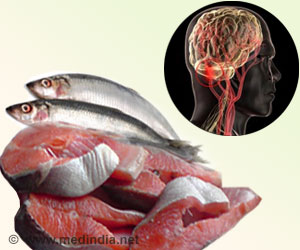Consuming fish once a week can improve a child’s quality of sleep and increases their IQ. Fish should be introduced to children as early as ten months.
Highlights
- Consuming fish once a week improves a child’s quality of sleep and increases their IQ by 4 times
- Omega-3 fatty acids in foods help improve intelligence and reduces sleep disturbances in children
- Fish should be introduced to children as early as ten months
TOP INSIGHT
Children who consume fish can lead to better sleep, improved school performance and other real-life and practical outcomes.
The study was conducted by Jianghong Liu, Jennifer Pinto-Martin and Alexandra Hanlon of the School of Nursing and Penn Integrates Knowledge Professor Adrian Raine. They revealed that sleep could be the possible mediating pathway, which is the missing link between fish and intelligence.
Importance of Omega-3 fatty Acids
Liu, lead author on the paper and an associate professor of nursing and public health said that this area of research is just emerging and is not well-developed. The research team studied omega-3 fatty acids present in foods instead of omega-3s from supplements.
This is a cohort study that included 541 participants who were in the age group of 9 and 11 in China.
A Chinese version of an IQ test called the Wechsler Intelligence Scale for Children-Revised was also done. This analysis examined the verbal and non-verbal skills including vocabulary and coding in these children.
Finally, the participant’s demographic information such as parental education, occupation and marital status and number of children in the home were collected.
Consumption of Fish Increases IQ
The Penn research team analyzed the data collected and found that children who consumed fish weekly scored about 4.8 points higher in the IQ exams when compared to those who said they seldom or never consumed fish.
Those participants whose meals included fish sometimes scored 3.3 points higher. Also, increased fish consumption leads to fewer disturbances of sleep.
"Lack of sleep is associated with an antisocial behavior; poor cognition is associated with antisocial behavior. We have found that omega-3 supplements reduce antisocial behavior, so it’s not too surprising that fish is behind this," said Raine, who has appointments in the School of Arts and Sciences and Penn’s Perelman School of Medicine.
Pinto-Martin, who is executive director of Penn’s Center for Public Health Initiatives, as well as the Viola MacInnes/Independence Professor of Nursing and a professor of epidemiology in Penn Medicine, sees strong potential for the implications of this research.
These findings of this study add to the growing body of evidence that consuming fish has positive health benefits and needs to be heavily advertised and promoted.
The research team suggested that children need to be introduced to fish very early in life, as early as ten months. Fish that has no bones can be copped and should be started by two years of age.
Pinto-Martin said that when fish is introduced early, it can be more palatable and does not require any extra effort. Children are highly sensitive to smell, and fish needs to be added to the diet early. Otherwise, children might shy away from it.
Liu and colleagues did not further analyze about the types of fish consumed by the children, though they planned to work on an older cohort later.
Consuming Fish improves Sleep Quality
The research team also reveals that consuming fish can also lead to better sleep, better school performance and other real-life, practical outcomes.
The team recommends incorporating fish into the diet. Consuming fish even once a week moves their family into the "high" fish-eating group, as seen in this study.
"Doing that could be a lot easier than nudging children about going to bed if the fish improves sleep, great. If it also improves cognitive performance like we’ve seen here even better. It’s a double hit," said Raine.
Nutritional Benefits of Fish
Fish is a highly nutritious food, which is an excellent source of protein and contains fewer calories. Fish is rich in omega-3 fatty acids that are proven to be good for the heart.
The biological value of fish protein is 80 and are low in fat, especially in cholesterol & saturated fats. Besides they are exceptionally rich in omega-3 fatty acids, beneficial to the heart.
Fish is rich in calcium, and small fishes can be eaten with bones. Canned fishes are very rich in calcium, as they become soft during processing.
Also, marine fishes are good sources of iodine, low in sodium and are rich in potassium.
Fish liver oils are also excellent sources of fat-soluble vitamins. Rohu (Indian fish) contains Vitamin C, vitamin D, and niacin.
Source-Medindia
 MEDINDIA
MEDINDIA





 Email
Email










